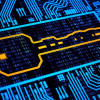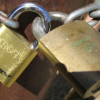Quantum key distribution in superposition of "insecure" and "unneeded"
It's apparent that the physics lexicon has been dragged kicking and screaming out of the 19th century with a recent paper published in Nature Photonics titled "Hacking commercial quantum cryptography systems by tailored bright illumination." I never thought I would live to see the word "hacking" used in its proper context in a physics paper. But enough about physics lingo. What about the quantum encryption hacks alluded to by the title?
What we have is another paper demonstrating that the weak point of quantum encryption systems is the point where classical meets quantum. This is not the first hack of its kind, but, it is, in true hacker tradition, the first focused on a commercial system.
Quantum key distribution makes use of the laws of physics to provide a guaranteed level of security. Boiled down to its essential components, quantum systems must be measured to determine their state. In making the measurement, the system is forced into a certain state. An eavesdropper cannot listen in on a quantum communication without everyone else on the line knowing that someone is getting the goods on them. It's security heaven: the walls may have ears, but in the quantum world, they are fluorescent pink and scream I CAN HEAR YOU.









































































